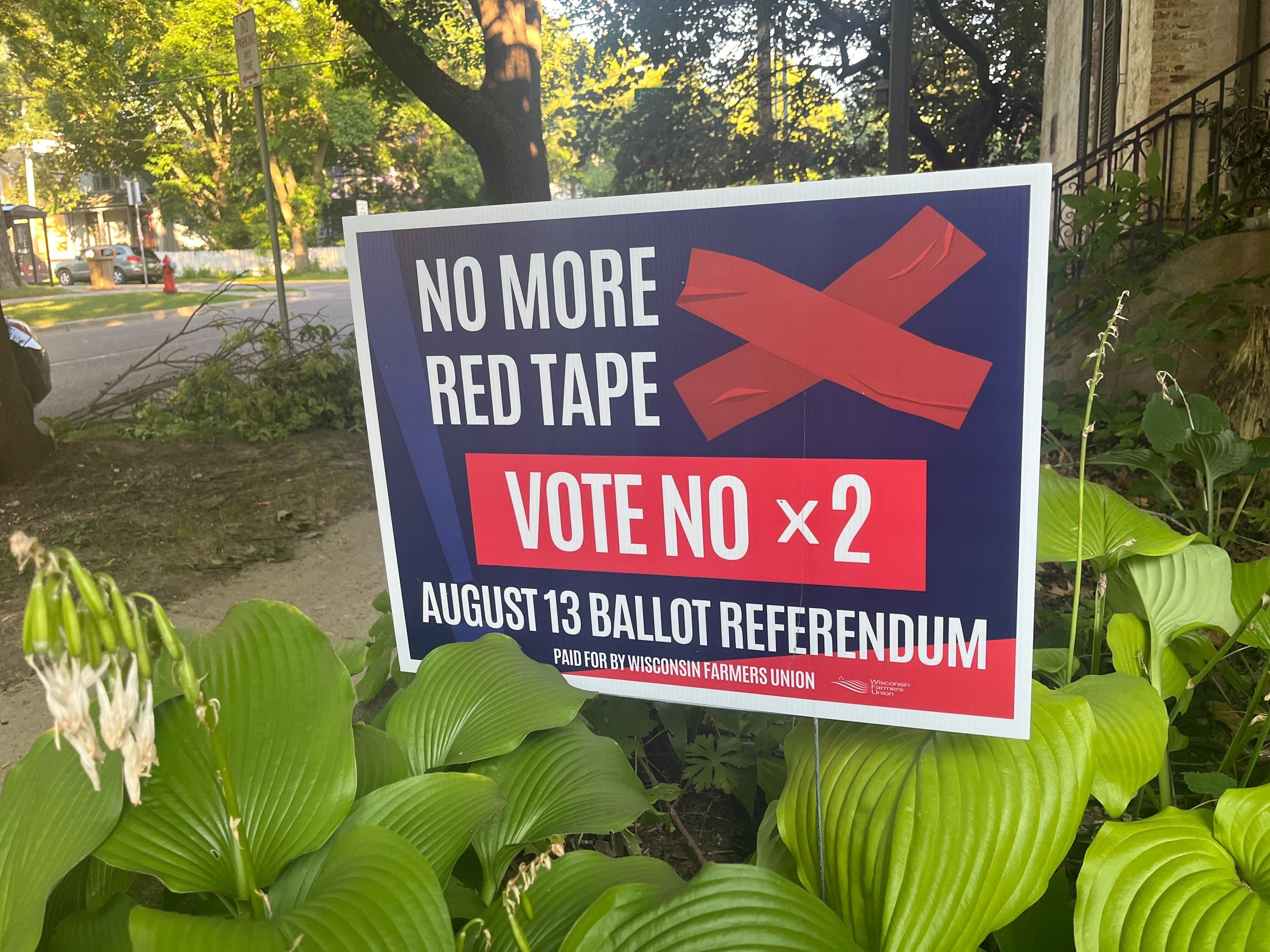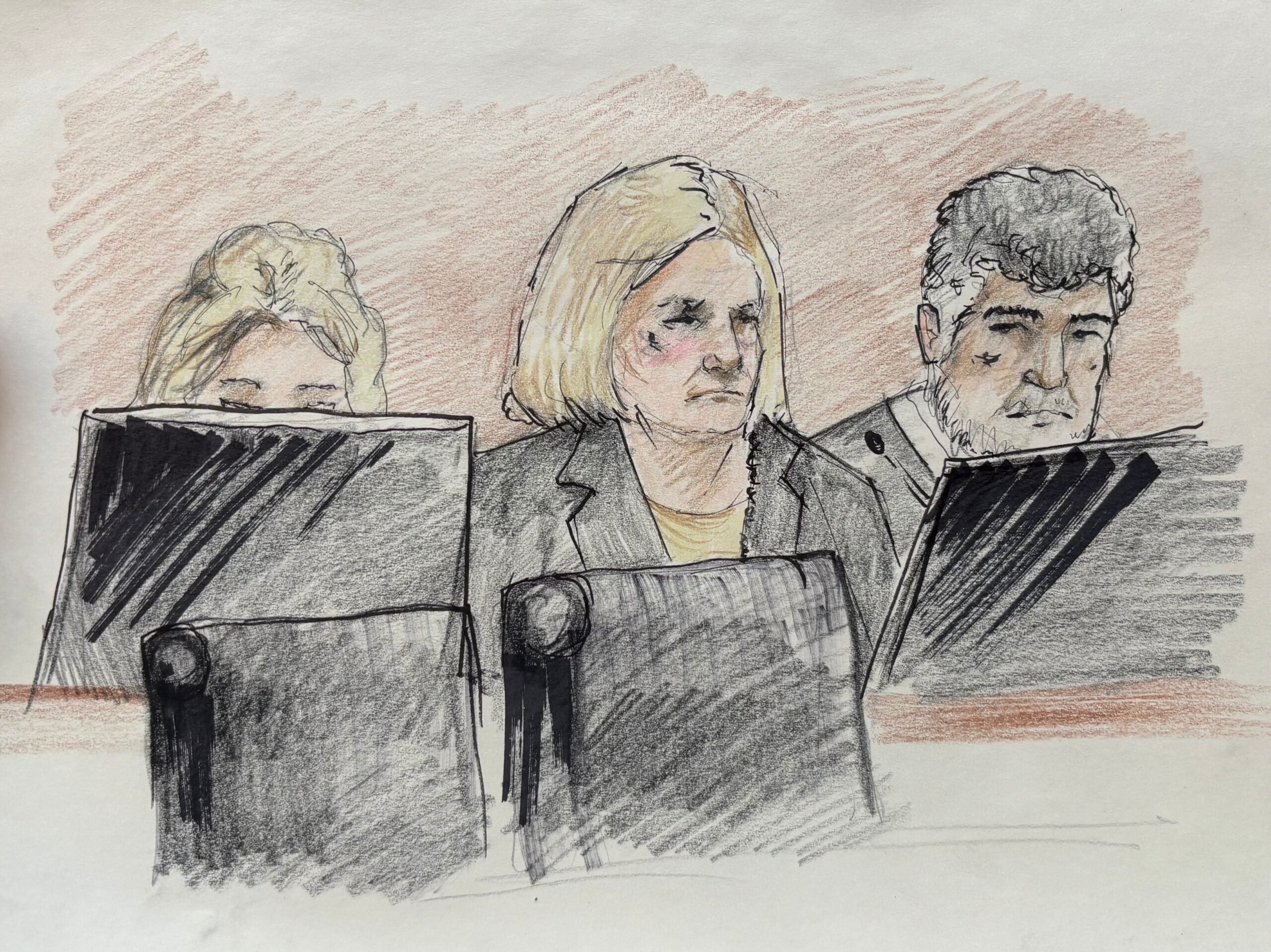Updated April 5, 2023 at 1:30 PM CST
Voters on Tuesday overwhelmingly approved three statewide ballot proposals, including measures that expand criteria judges are directed to consider when setting cash bail and other conditions for releasing someone before trial.
The first question OK’d by voters broadens language in the state Constitution by authorizing judges to weigh “serious harm” instead of “serious bodily harm” as among the criteria necessary to protect the community when setting conditions on a defendant’s release before trial.
News with a little more humanity
WPR’s “Wisconsin Today” newsletter keeps you connected to the state you love without feeling overwhelmed. No paywall. No agenda. No corporate filter.
Under the existing system, it’s routine for judges to set non-monetary conditions of release, like requiring house arrest, prohibiting contact with witnesses or barring anyone accused of sex crimes against children from being in contact with minors. Proponents of the amendment said the broader language was necessary to give judges more leeway to keep the community safe.
The second question, which also gained voter approval, adds criteria for judges to consider when setting cash bail. That’s a deposit someone pays in exchange for being released from jail, with the expectation that it won’t be refunded if they flee before their scheduled court appearances.
Currently, that section of the Constitution solely instructs judges to set bail as a means of ensuring someone returns to court. The amendment adds language telling judges to weigh the “totality of the circumstances” and lists additional factors, including a defendant’s past convictions for violent crimes and the need to prevent witness intimidation.
The Republican-led state Legislature has passed a law to define serious harm and violent crimes as referenced in those constitutional amendments, but Democratic Gov. Evers hasn’t said whether he plans to sign that legislation.
Although his signature is necessary for the companion definitions to take effect in state law, the amendments approved by voters will be written into the Constitution regardless of Evers’ approval.
Law enforcement groups including the Wisconsin Chiefs of Police Association endorsed the bail-related ballot proposals, saying the added criteria will allow judges to better protect the public by taking a wider range of factors into account.
But civil-liberties advocates and other critics worried an expanded bail system will exacerbate inequalities between rich and poor, and increase the number of people stuck in jail before their trials while they’re still supposed to be presumed innocent.
At the same time, some legal experts predict the actual impact of the changes will be limited, since judges have broad discretion when setting bail and, in practice, are already considering factors like prior convictions.
Questions 1 and 2 both passed with about 67 percent of the votes in favor, according to results tallies by the Associated Press as of Wednesday morning when roughly 99 percent of votes across Wisconsin had been counted. Election night tallies remain unofficial until they’re canvassed by election officials and certified by the Wisconsin Elections Commission.
Non-binding ballot question on public benefits also passes
Additionally, a majority of Wisconsin voters affirmed the belief that able-bodied childless adults should be required to look for work as a condition of receiving “taxpayer-funded welfare benefits.”
That third statewide ballot question passed by an even more decisive margin. Unofficial results show close to 80% of votes were in favor of that proposal.
That ballot question was non-binding and will not change Wisconsin’s policies. Its Republican legislative sponsors say they brought it to the ballot to gauge public opinion, but many Democrats accused them of including the bail and welfare-related proposals as a way to drive up conservative turnout for Tuesday’s crucial state Supreme Court race.
Work requirements already apply to many Wisconsinites who receive public benefits, including those who get FoodShare assistance.
Wisconsin Public Radio, © Copyright 2026, Board of Regents of the University of Wisconsin System and Wisconsin Educational Communications Board.







